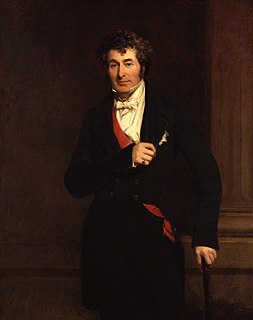A Quote by Johann Wolfgang von Goethe
The most foolish of all errors is for clever young men to believe that they forfeit their originality in recognizing a truth which has already been recognized by others.
Related Quotes
If the errors of my life have profited me one great truth it is this: believe. Believe in your destiny and the star from which it shines. Believe you have been sent from God as an arrow pulled from his own bow. It is the single universal trait which the great of this earth have all shared, while the shadows are fraught with ghosts who roam the winds with mournful wails of regret on their lips. Believe as if your life depended upon it, for indeed it does.
And what physicians say about disease is applicable here: that at the beginning a disease is easy to cure but difficult to diagnose; but as time passes, not having been recognized or treated at the outset, it becomes easy to diagnose but difficult to cure. The same thing occurs in affairs of state; for by recognizing from afar the diseases that are spreading in the state (which is a gift given only to the prudent ruler), they can be cured quickly; but when, not having been recognized, they are not recognized and are left to grow to the extent that everyone recognizes them, there is no longer any cure.
Nothing matters more to the future of this Nation than insuring that our young men and women learn to believe in themselves and believe in their dreams, and that they develop this capacitythat you develop this capacity, so that you keep it all of your lives. I believe one of Americas most priceless assets is the idealism which motivates the young people of America. My generation has invested all that it has, not only its love but its hope and faith, in yours.
Family life in Western society since the time of the Old Testament has been a struggle to maintain patriarchy, male domination, and double standards in the face of a natural drift towards monogamous bonding. Young men have been called upon to prove their masculinity by their willingness to die in warfare, and young women have been called upon to prove their femininity by their willingness to die for their man. Women have been asked to appear small, dumb, and helpless so men would feel big and strong, brave, and clever. It's been a trick.
Progress is the exploration of our own error. Evolution is a consolidation of what have always begun as errors. And errors are of two kinds: errors that turn out to be true and errors that turn out to be false (which are most of them). But they both have the same character of being an imaginative speculation. I say all this because I want very much to talk about the human side of discovery and progress, and it seems to me terribly important to say this in an age in which most non-scientists are feeling a kind of loss of nerve.
I know that most men, including those at ease with problems of the greatest complexity, can seldom accept even the simplest and most obvious truth if it be such as would oblige them to admit the falsity of conclusions which they have delighted in explaining to colleagues, which they have proudly taught to others, and which they have woven, thread by thread, into the fabric of their lives.





































